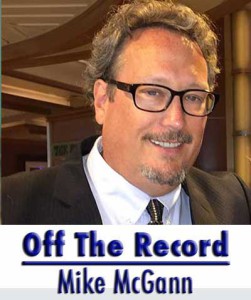But it does highlight need to fix funding formula, charter abuses
By Mike McGann, Editor, The Times
 The deal agreed to by the Unionville-Chadds Ford School District and its teachers union earlier this month isn’t perfect, but it is a deal the teachers and the greater community can live with.
The deal agreed to by the Unionville-Chadds Ford School District and its teachers union earlier this month isn’t perfect, but it is a deal the teachers and the greater community can live with.
Salaries will increase 2.79% annually over the term of the pact — above the likely Act I index, but only slightly. And if, as is expected, pressure mounts for the Wolf Administration to restore the planned sunsetting of exemptions for pensions and special education, it shouldn’t end up being a crisis.
I get the fact that those on fixed incomes don’t like the idea of paying more in taxes. But I do think a couple of facts should be thrown out there:
First, if you ever sent a kid to UCFSD schools, it’s a bit silly to think you should only have to pay school taxes for the 13 years your kid was in school. Assuming a cost of $15,000 per year (which is probably low) and a school tax payout of $5,000 a year (probably high), you’d have to pay your property taxes for 39 years before being in the red. If you had more than one kid — well, you get the idea. And of course, that doesn’t count for the ancillary benefits of having a well-educated community, both economic and personally.
If you sent your kid somewhere else — well someone, somewhere paid a lot to educate your kids (either you, in opting for private school, or taxpayers in whatever public district you were in) and there remains a moral obligation to the greater community.
Second: with the UCFSD’s exceptional ratings as a school district, all of our homes are worth as much as $20,000 (a conservative number, based on the frequency of calls I get from realtors wanting to know if I might want to sell) more than comparable homes in neighboring school districts. The math suggests that spending an extra $100-200 a year in taxes to maintain that value is a sound investment.
Third: Pennsylvania’s funding formula for schools is ridiculous and needs revisions. A generation ago, the state funded 50% (on average) of the cost of education. Since then, the number has dropped to about 31% (on average), while adding a ton of unfunded mandates, especially in areas such as special education. This is how governors and state legislators in both parties have pushed their tax increases onto local school boards — and created the real estate tax mess we have now.
I might be more impressed with the arguments about the largess of similar teacher contracts (and UCFSD’s is pretty much right in the sweet spot of similar deals in and around Chester County) if I were seeing similar outrage over the abuses of charter schools — another gift from state legislators and governors — especially when it comes to special education students.
Privately, a number of local public school administrators, express their frustration at these schools — some run by for-profit companies despite a technical ban on such things — cherry picking special education students, so as to take those with the least disabilities and yet charging local districts $40,000 a year for their education. That’s our tax money going to flesh out the profit margin of a private corporation.
And by the way, that’s tax money we have no say in how it is spent. No local elected official directly oversees local charter schools, which may explain why the for-profit companies rack up the profits while turning in some of the state’s worst test scores. There’s no one I can vote out of office if I’m frustrated by the way the local charter school is operated, unlike my local public school.
No, this isn’t a blanket condemnation of charter schools, some of which are well run and provided needed alternatives to failing public schools — but point to the lack of transparency and oversight for these schools. I want accountability for my tax dollars — and I don’t get it. From here, it appears that campaign contributions from said companies drives a lot more policy decisions than what is best for taxpayers or students.






